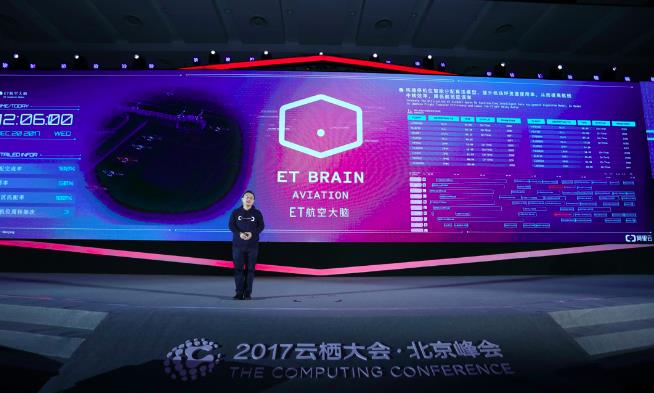Global Network Technology Report – If you're an airport dispatcher, imagine handling 1,700 dynamic flights each day that are waiting for a parking spot. You have to consider whether overnight flights comply with the next day’s departure order, if there's enough time, and you only have 300 parking bays to choose from, along with varying sizes. Some require a 15-minute shuttle ride. Passengers want their flights to take off on time. What would you do in such a situation?

This is just part of the daily routine for dispatchers at Beijing Capital International Airport. But soon, they’ll have a new AI assistant—available 24/7, smart, and efficient. On December 20, Alibaba Cloud launched the ET Aviation Brain at the Yunqi Conference and Beijing Summit. Using artificial intelligence techniques like operational optimization and machine learning, it helps allocate aircraft parking spaces. It's expected to manage 1,700 flights per day, saving passengers around 5,000 hours and significantly improving flight transfer efficiency, reducing delays.
As one of the busiest airports globally, Beijing Capital Airport handled over 90 million passengers in 2016. With such massive traffic, managing the flow of passengers, aircraft, and baggage is a complex challenge. Ensuring smooth transfers, minimizing delays, and helping passengers board efficiently has always been a pressing issue. Now, the airport is turning to innovative AI solutions provided by Alibaba Cloud.
At the airport, two planes land every minute, totaling 1,700 flights daily. However, there are only about 300 parking bays available. Dispatchers spend 2–3 hours each day arranging these spots, memorizing details like aircraft type, parking size, location, runway position, and more. Unexpected events like bad weather can disrupt schedules, requiring quick rescheduling.
The ET Aviation Brain aims to reduce the workload on dispatchers and boost airport efficiency. To manage 1,700 flight stops, the system first learns about aircraft models, landing times, parking availability, runway positions, and other key factors. It then creates smart mathematical models and uses custom algorithms to account for constraints and sudden changes.
Powered by Alibaba Cloud’s own cloud computing operating system, the ET Aviation Brain can reassign parking spaces for 1,700 flights in just 50 seconds. This maximizes apron space, improves aircraft transfer efficiency, and reduces delays caused by poor arrangements. It also increases parking space utilization at Langqiao by 10%, meaning 20,000 passengers no longer need a shuttle bus daily, saving about 5,000 hours in total.
According to Ali Wanyun, Alibaba Cloud’s chief scientist of machine intelligence, intelligent parking management is just one feature of the ET Aviation Brain. The system also aims to expand into other aviation scenarios. Earlier, Alibaba Cloud’s Tianchi platform partnered with Xiamen Airlines and Baiyun Airport to launch the Smart Aviation AI Contest, inviting engineers worldwide to use AI to solve real-world aviation challenges.
Looking ahead, the ET Aviation Brain will continue offering AI-driven solutions for flight recovery, ground staff scheduling, and airline route planning, shaping the future of smart aviation.
In fact, Beijing Capital Airport isn’t the first place where Alibaba Cloud has applied its intelligent systems. A year ago, during a busy period, the company used its technology to manage 1.8 million riders efficiently.
High Temp Constant Power Heating Cable
High Temp Constant Power Heating Cable,Self-Regulating Electric Heating Tape,Snowmelt Heating,High Temperature Electric Heating Tape
JIANGSU PENGSHEN HIGH TEMPERATURE WIRE CABLE CO., LTD. , https://www.pengshencable.com